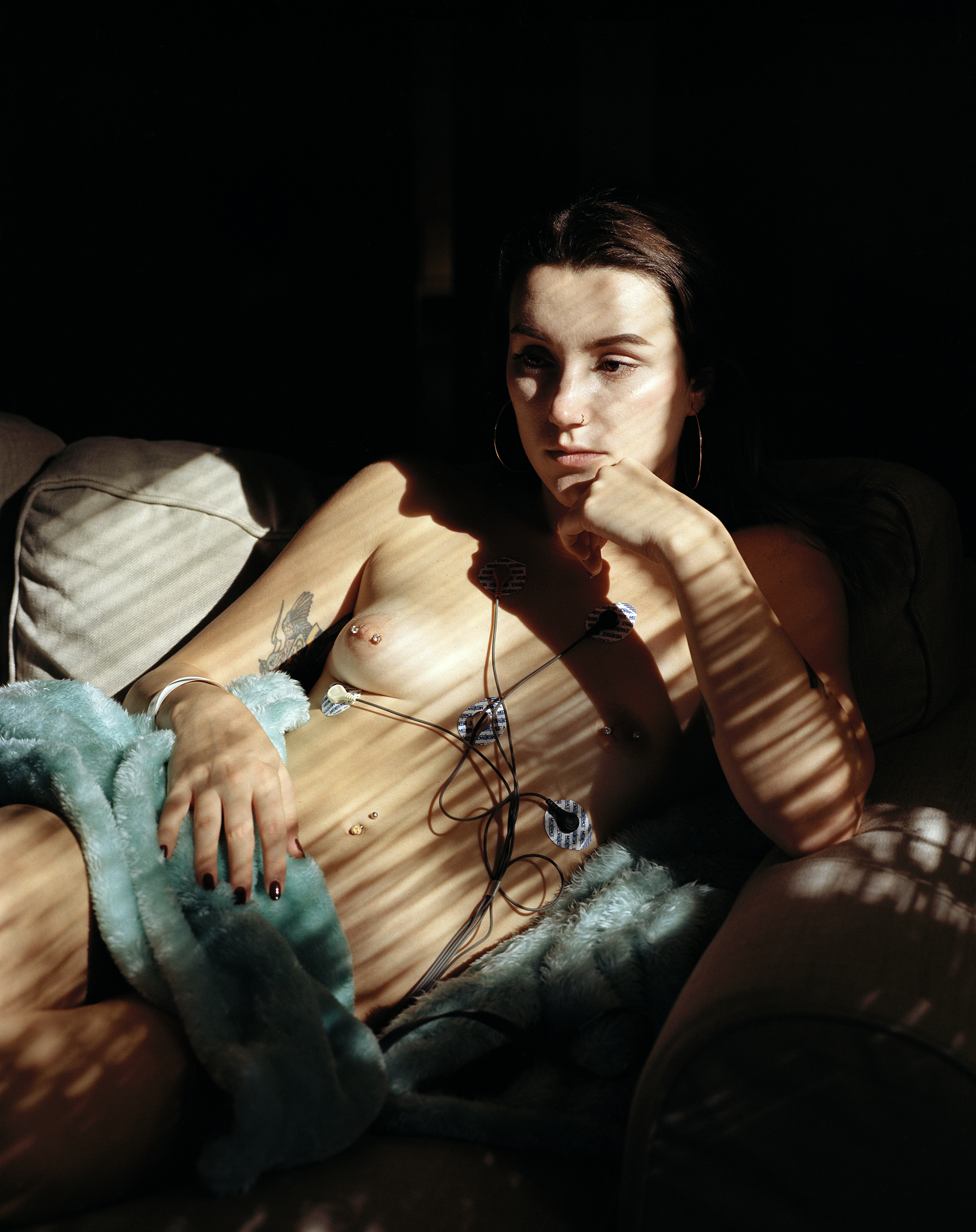Kaitlin Maxwell
WORDS BY JAMES ARTHUR ALLEN
American photographer Kaitlin Maxwell is due to graduate from her MFA in photography at Yale University, Connecticut in the summer of 2019. She has been photographing the women in her life for the last three years creating a body of work that explores the family dynamics of love, forgiveness and acceptance. The rich and intimate portraits that create the backbone of the work are lyrical and rich. Maxwell’s images take us on a journey of family and matriarchy.
There are complicated relationships at work here. These are a series of portraits that study the formative experiences of the women who raised Maxwell after the death of her Father at a young age. Maxwell’s mother, grandmother and father have been involved in the sex industry before her birth. Her mother in particular has a complicated relationship with her body and the camera. She has spent a long time tracking down images of her past life in order to destroy them. Photography is a medium that has caused her guilt and shame in regards to the relationship with her daughter. Maxwell explores this spectre of shame with poise and tenderness. The pressure and anxiety of motherhood thrust onto her mother at a young age surge through the series. There are intensely gentle moments between the two of them, where we are unsure of who is mothering who. The role of mother seems to be fluid. The opposite could be said for, her grandmother, Candy, a strong exhibitionist figure whose sexuality is constant. The other women appear to look to Candy as a strong, confident matriarch.
“The ability to capture intimacy as an onlooker rather than a participant has greatly informed my work and served as a means of coping. I believe this type of dissociative observing began with my father's death. It was then that I learned to separate myself, learning that I felt most comfortable observing from behind others.”
Maxwell’s self-portraiture and incidentals are an exercise in study and understanding. We see an apple on the floor crawling with ants – a metaphor for the temptation of Eve. A portrait of her mother masked by an apple tree precedes this image. Confrontational in part these images are a study of a family that is underlined with trauma and grief, hinted at in part by the lack of the male figure. The loss of her father is ever present within the work even though he is never visually present. The dominance and history of the women in her life leads Maxwell to experiment with her own place as a women, her self portraiture an attempt to emulate her role models and guides. To see and understand where she fits in.
Maxwell admits to these performances being uncomfortable but enabling her to further understand who she is in relation to the women in her life who have preceded her.
“As I began dissecting my own relationship with my mother and grandmother, a catalyst began to occur and I found myself questioning if, I too, was capable of possessing the qualities I have always admired of the women who preceded me. In making these images, I have begun to focus on examining matriarchal figures in my life, which has left me realising that there is so much more to my identity and sexuality than I am aware of.”
The resulting series does not answer questions, but asks them. This is what makes this series most engaging. Maxwell sees this project as an evolution, a project for life, a continuous performance that aims to allow her to understand the joy, conflicts and spaces in her environment. She explains to me that as her place in the world evolves and relationships ebb and flow she will continue to photograph as a way of understanding her place in the world. By participating in her own narrative she will explore the complexities of matriarchy, family and relationship.



